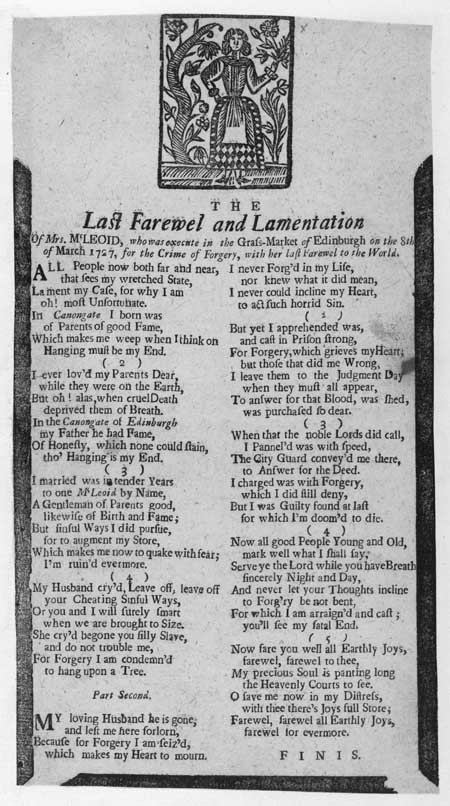Commentary
The report begins: 'The Last Farewel and Lamentation Of Mrs. M'Leoid, who was Execute in the Grass-market of Edinburgh on the 8th of March 1727, for the Crime of Forgery, with her last Farewel to the World.' The name of the publisher is not included. These broadside verses tell the tragic story of Mrs McLeod, who was executed in Edinburgh in 1727, for the crime of forgery. The first part of the ballad describes her early life, ending with the charge of forgery. In part two of the ballad, Mrs McLeod protests her innocence and warns that those who did her wrong will suffer come Judgement Day. While being sentenced to death for forgery might seem harsh to a modern audience, the severity of the 'Bloody Code' (known as the 'Criminal Code' in Scotland) meant that executions for such offences were commonplace. Broadsides are single sheets of paper, printed on one side, to be read unfolded. They carried public information such as proclamations as well as ballads and news of the day. Cheaply available, they were sold on the streets by pedlars and chapmen. Broadsides offer a valuable insight into many aspects of the society they were published in, and the National Library of Scotland holds over 250,000 of them.
View Transcription | Download PDF Facsimile
|
 |
Date of publication:
1727 shelfmark: Ry.III.a.10(108)
 View larger image
View larger image
|


